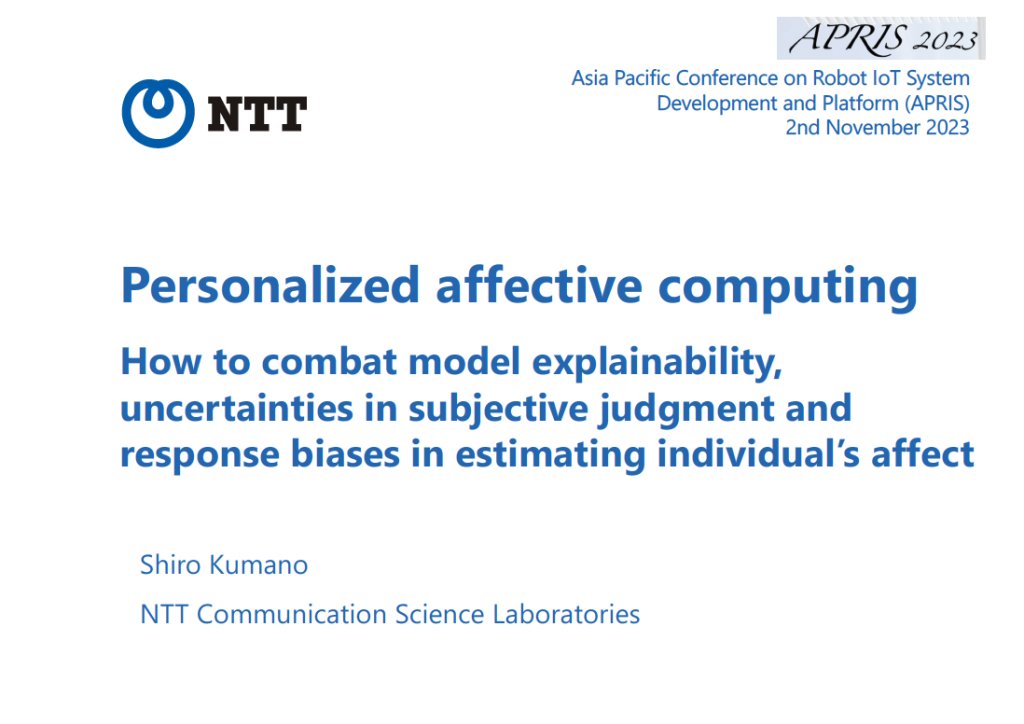(Invited talk) Personalized affective computing – How to combat model explainability, uncertainties in subjective judgment and response biases in estimating individual’s affect –
Asia Pacific Conference on Robot IoT System Development and Platform (APRIS 2023) | 1-2 Nov., 2023
Affect has been studied in numerous areas, including product design, conversational agents, mental health, education, and decision making. Originally, many affect estimation studies targeted population level affect, such as affect perceived by an average person. In recent years, research on personalization has intensified and, as a result, faces several issues that were not as significant when looking at population averages. One is the ethical problem of inferring people’s internal minds, which can be considered the most personal, and therefore, for example, explainability of models is more important. The second is uncertainty in subjective judgment per se, namely that the same person does not always give the same rating to the same target. It is thus necessary to train and evaluate models based on the aleatory uncertainty. The last issue is biases in individual’s responses. In many cases, what we want to know is how a target person “perceives”. However, many methods use raw subjective ratings, which leads them to predict what the person would “choose” given a set of options. In this talk, I will present our recent work on these three issues.
Click the image or here to see the pdf.
To cite this talk:
@unpublished{kumanoAPRIS2023,
title= {Personalized affective computing: How to combat model explainability, uncertainties in subjective judgment and response biases in estimating individual’s affect},
author = {Shiro Kumano},
year = {2023},
note= {Asia Pacific Conference on Robot IoT System Development and Platform (APRIS 2023)},
URL= {http://www.sigemb.jp/APRIS/2023/},
}
